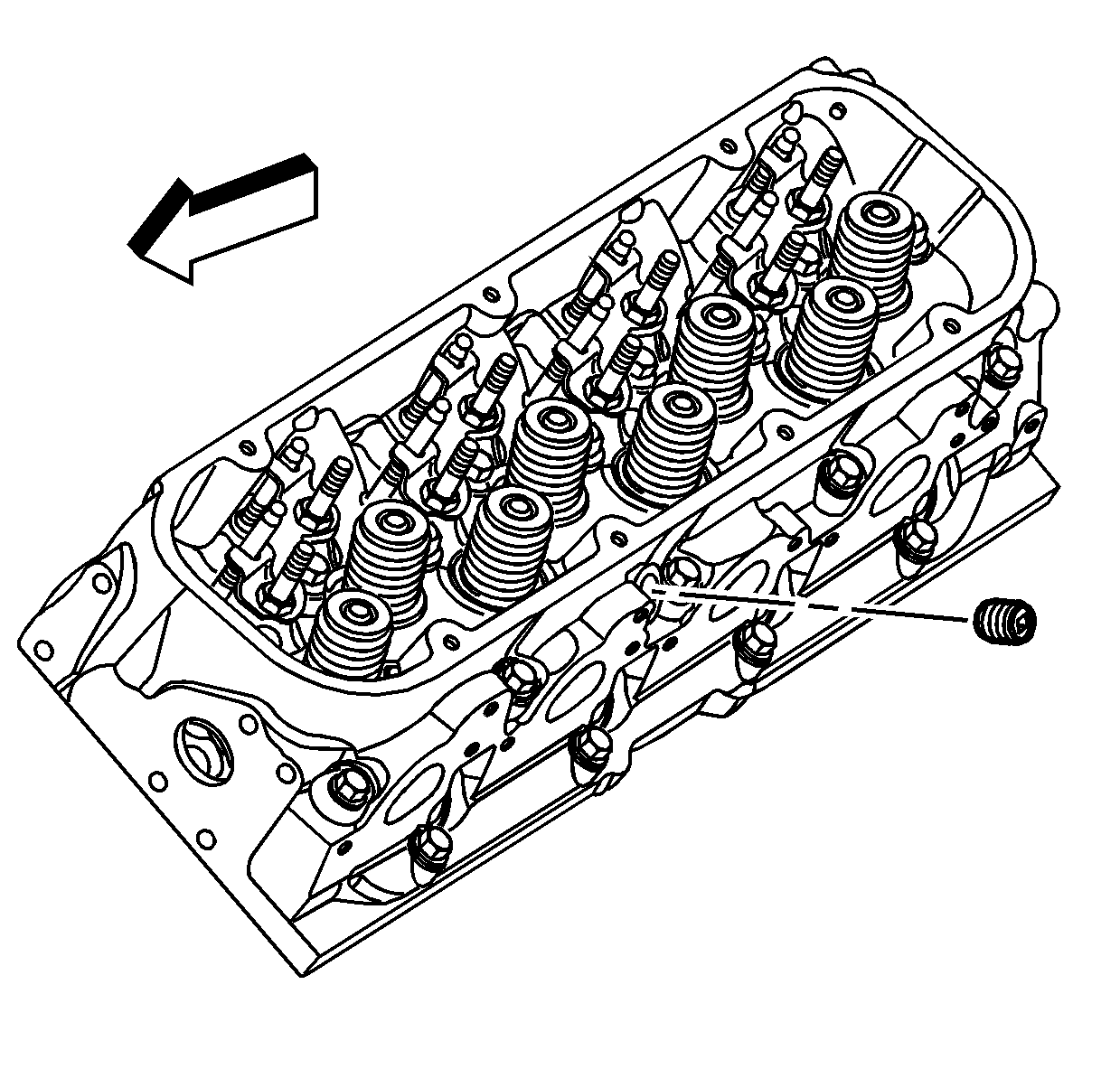Special Tools
| • | J 8062 Valve Spring Compressor - Head Off |
| • | J 43105 Valve Stem Seal Installer |
Checking Valve Spring Installed Height
- Install the valve rotator (3), the valve (4), the valve spring cap (1) and the valve stem keys (5) into the cylinder head.
- Using a snap gage or inside micrometer, measure the distance from the top of the valve rotator to the bottom of the valve spring cap. Refer to Engine Mechanical Specifications for proper valve spring installed height specifications.
- Install a valve spring seat shim if the valve spring installed height measurement is above the specification.
- Inspect the valve spring installed height again. Replace the cylinder head if the valve spring installed height cannot be obtained.
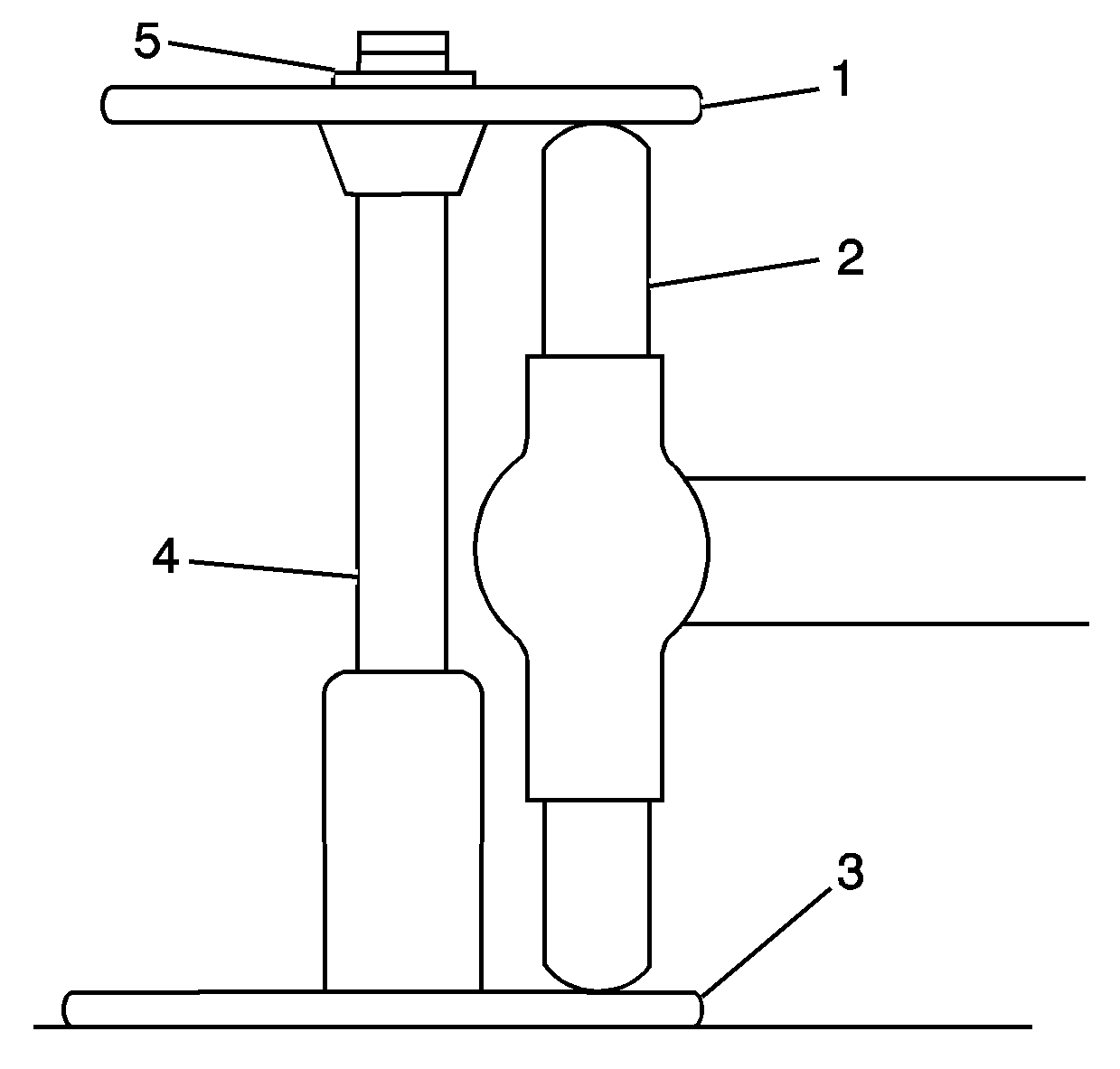
Note:
• Never shim the spring to obtain an installed height under the specified amount. • Install the valve spring seat shims under the rotator, between the rotator and the cylinder head spring seat. • Add a maximum of 1 valve spring seat shim, up to 0.726 mm (0.030 in) thick to achieve the valve spring installed height specification.
Valve Installation
- Lubricate the valve stems (232) with clean engine oil.
- Insert the valves into their proper locations.
- Install the necessary valve spring shims onto the cylinder head, if applicable.
- Lubricate the rotators (216) with clean engine oil.
- Install the rotators over the guide and on top of the cylinder head or valve spring shims, if applicable.
- Lubricate the valve stem oil seal and the outside diameter of the valve guide with clean engine oil.
- Using the J 43105 installer , install the valve stem oil seals (217) over the valve tip and onto the valve guides. Tap the valve stem seal onto the valve guide until the J 43105 installer fully seats the seal.
- Install the valve springs (218).
- Install the valve spring caps (219).
- Use the J 8062 compressor in order to compress the valve spring. Compress the spring enough to clearly see the valve stem key grooves of the valve.
- Install the valve stem keys.
- Release and remove the J 8062 compressor .
- Lightly tap the end of the valve stem with a plastic-faced hammer to seat the keys.
- Apply sealant GM P/N 12346004, (Canadian P/N 10953480), or equivalent, to the threads of the engine coolant temperature (ECT) sensor.
- Install the ECT sensor into the right cylinder head. Tighten the ECT sensor to 50 N·m (37 lb ft).
- Install the ECT sensor bracket and bolt. Tighten the ECT sensor bracket bolt to 50 N·m (37 lb ft).
- Apply sealant GM P/N 12346004, (Canadian P/N 10953480), or equivalent, to the threads of the cylinder head coolant hole plug.
- Install the cylinder head coolant hole plug into the left cylinder head. Tighten the cylinder head coolant hole plug to 50 N·m (37 lb ft).
Warning: Refer to Safety Glasses Warning in the Preface section.
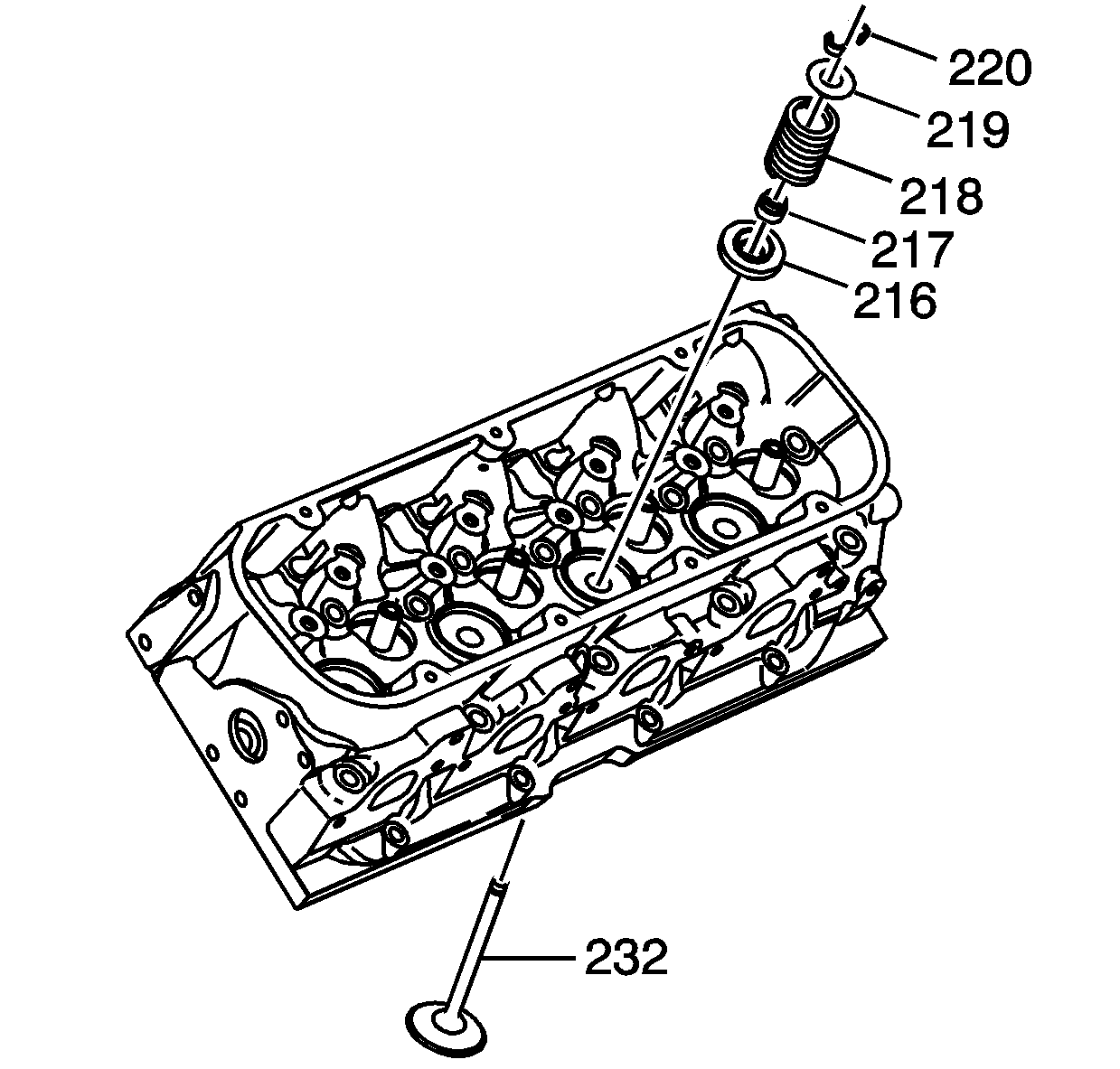
Warning: Compressed valve springs have high tension against the valve spring compressor. Valve springs that are not properly compressed by or released from the valve spring compressor can be ejected from the valve spring compressor with intense force. Use care when compressing or releasing the valve spring with the valve spring compressor and when removing or installing the valve stem keys. Failing to use care may cause personal injury.
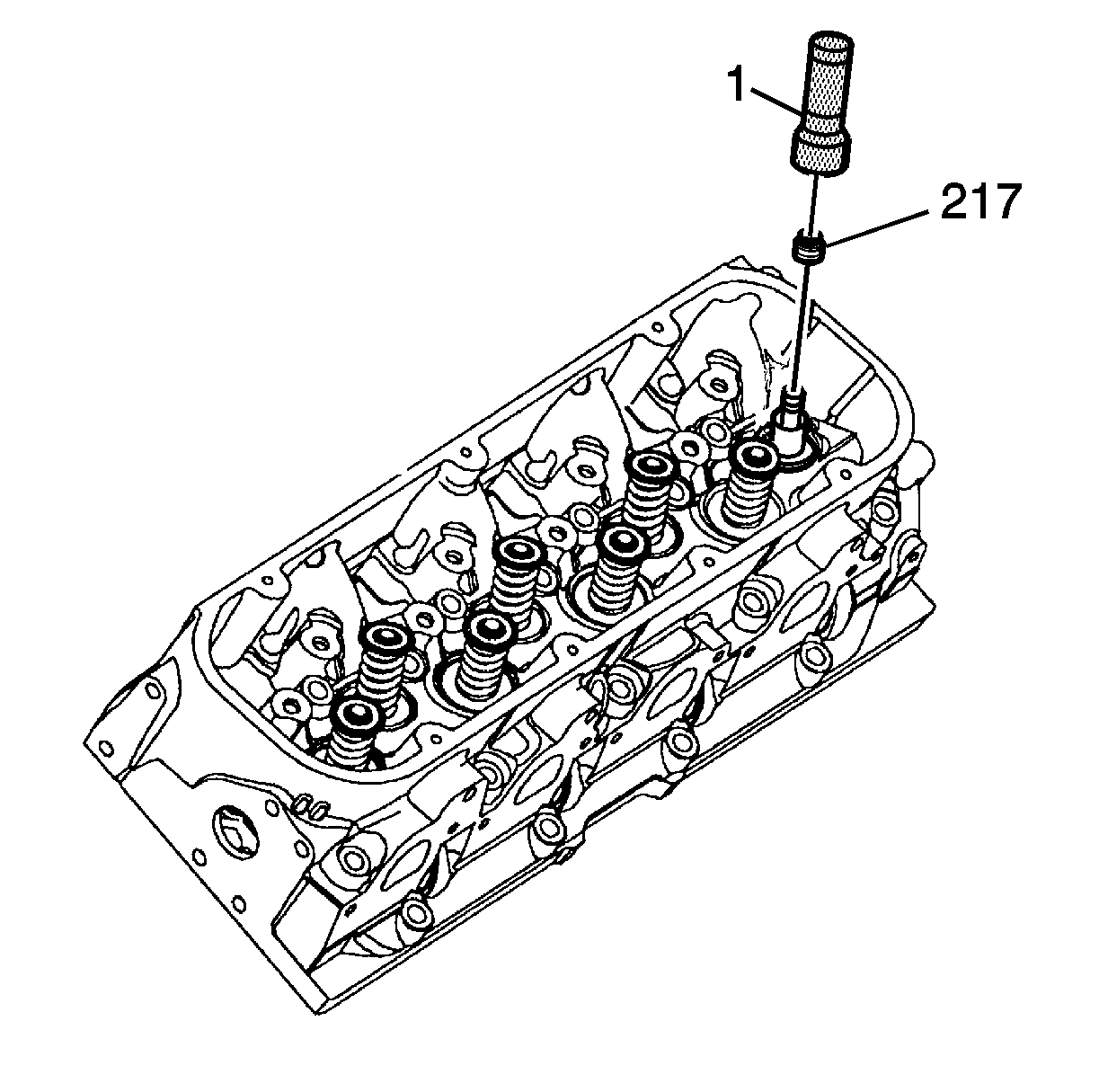
Note:
• When installing valve stem oil seals onto the valve guides, be careful not to tear the seal lip. • When installing valve seals, the
J 43105 installer
must be used to achieve correct installation. Failure to use the
J 43105 installer
may cause excessive oil consumption.

Note: When installing valve springs, the small end of the valve spring must be installed up.
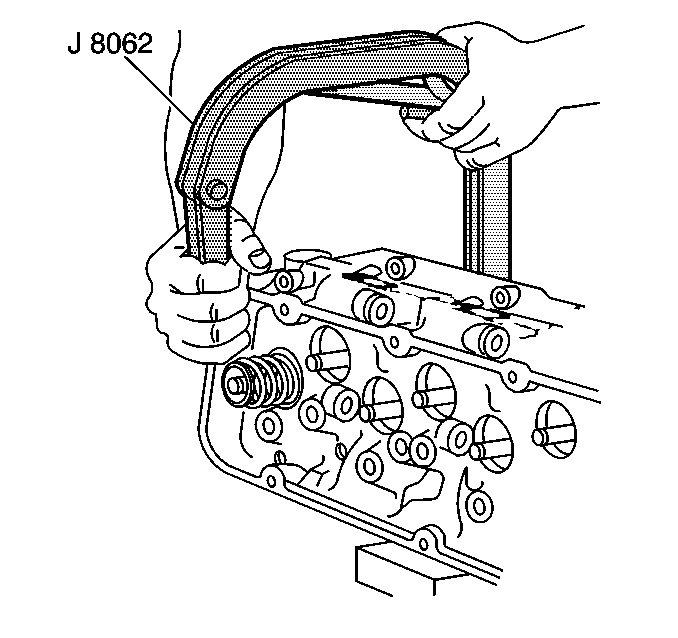
| • | Use grease to hold the keys in place. |
| • | Ensure that the keys seat properly in the upper groove of the valve stem. |
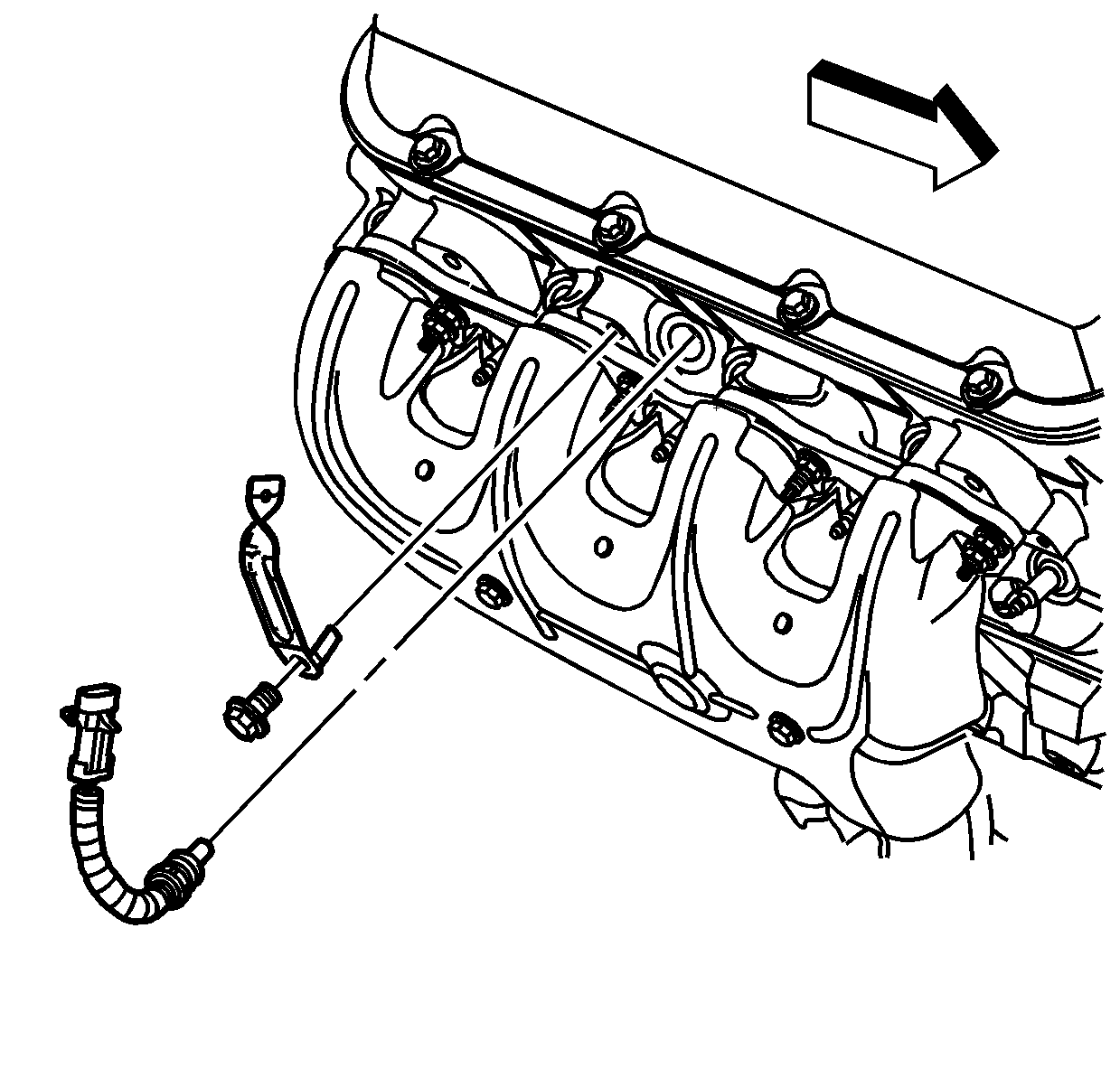
Caution: Refer to Fastener Caution in the Preface section.
